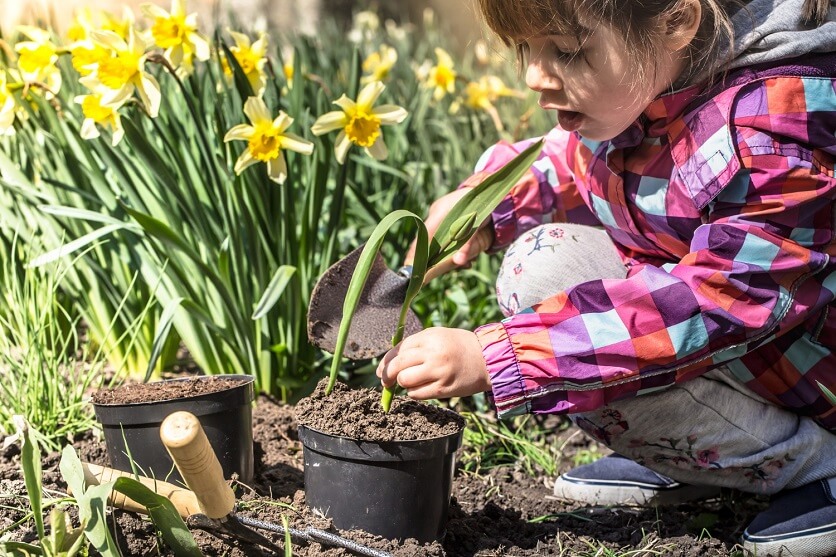Gardening is far more than a mere outdoor activity; it is a multifaceted approach to fostering holistic development in children. This naturalistic endeavor exposes children to a plethora of educational, physical, mental, and social benefits that resonate through their daily lives. The act of planting, nurturing, and harvesting cultivates a sense of responsibility and connectivity with the environment, ultimately shaping more conscientious, resilient, and well-rounded individuals.
As society continues to evolve and technology becomes increasingly pervasive, the importance of hands-on experiences, such as gardening, cannot be overstated. Understanding the profound advantages of engaging children in this timeless activity highlights why it remains an indispensable component of their growth and education.
In this article, we will explore the myriad benefits of gardening on children’s growth and development, delving into its physical, cognitive, emotional, and social advantages.
Physical Benefits: A Foundation of Health
Gardening serves as an exceptional avenue for physical activity, presenting children with an opportunity to engage in movement that is inherently enjoyable. The act of digging, planting, weeding, and watering taps into various physical skills, which promote the development of both fine and gross motor skills. These activities not only improve dexterity but also enhance coordination and balance.
Moreover, gardening encourages active, outdoor living. According to studies, regular outdoor play has been linked to reduced rates of childhood obesity, as children are naturally more inclined to run, jump, and explore in a green environment. Gardening fosters a connection with nature, enticing children to spend time away from screens and into the open air, further enhancing their physical well-being.
There is also a nutritional component associated with gardening. When children cultivate their fruits and vegetables, it instills an appreciation for fresh produce. As a result, they are more likely to adopt healthier eating habits, impacting their long-term health. Various studies suggest that children who engage in gardening activities are more inclined to consume fruits and vegetables, which can mitigate issues related to poor diet. This awareness of nutrition can pave the way for a lifetime of informed dietary choices.
Cognitive Benefits: Cultivating Minds
Beyond physical advantages, gardening nurtures cognitive growth through experiential learning. The exploration of plant biology, ecosystems, and environmental science supports hands-on education. Children learn about photosynthesis, growth cycles, and the importance of biodiversity, enhancing their understanding of natural processes.
Additionally, gardening fosters critical thinking and problem-solving skills. Children encounter challenges that require creative solutions, such as identifying pests or adjusting watering schedules. This intellectual engagement sharpens their analytical abilities as they examine cause-and-effect relationships in real-time.
Moreover, planning a garden necessitates organization and foresight. Children must consider what to plant, when to plant, and the care required for each species. This process cultivates patience and persistence, as they learn that progress takes time and effort. Such experiences are invaluable, aiding their academic endeavors by reinforcing concepts encountered within classroom settings.
Emotional Benefits: A Journey of Self-Discovery
The act of gardening also heralds significant emotional benefits. Engaging with plants and nature can serve as an antidote to stress and anxiety. Being outdoors and tending to living things promotes relaxation, which is crucial in a world where children often feel overwhelmed by academic and social pressures. Tending to a garden offers a serene environment where they can experience mindfulness and self-reflection.
Furthermore, nurturing plants instills a sense of accomplishment. As children witness their efforts yield tangible results, their self-esteem flourishes. The act of planting seeds that blossom into flourishing life forms allows them to build confidence, reinforcing their ability to effect change in the world around them.
This nurturing behavior also fosters empathy. By caring for plants and observing their growth, children learn to appreciate the nuances of life and the responsibilities associated with nurturing. This heightened sense of empathy can extend to their interactions with peers and animals, cultivating compassion and understanding.
Social Benefits: Building Connections
Gardening is inherently a communal activity, encouraging collaboration and teamwork. Whether in a school garden, community plot, or backyard, gardening frequently involves shared responsibilities and collective efforts. Children learn to communicate effectively, negotiate roles, and cooperate to achieve a common goal, nurturing essential social skills in the process.
The act of gardening also strengthens familial bonds. Engaging in gardening activities as a family promotes quality time, nurturing relationships and creating shared memories. Working side by side builds trust and unity, allowing children to feel more secure in their familial relationships.
Additionally, gardening creates opportunities for intergenerational communication. Sharing gardening wisdom with grandparents or family members evokes stories, traditions, and cultural histories that enrich children’s understanding of their heritage. These connections, both past and present, blossom through discussions fostered by shared experiences in the garden.
Environmental Stewardship: Fostering a Sense of Responsibility
In tandem with the personal benefits, gardening cultivates a sense of responsibility toward the environment. Children who engage in gardening comprehend the fragility of ecosystems and the importance of biodiversity. This awareness encourages them to become more environmentally conscious citizens, which is critical in an era where climate change and ecological degradation loom large.
By tending to plants and watching them grow, children begin to appreciate the lifecycle of nature, understanding their role within the broader ecological context. They learn the significance of sustainable practices, such as composting, crop rotation, and organic gardening methods, which equips them with the knowledge to contribute positively to their communities.
The lessons garnered through gardening often translate into advocacy for environmental causes. Children raised with a consciousness of nature are predisposed to engage in activities like recycling, conservation, and community clean-ups, promoting a brighter future for all.
Conclusion: The Roots of a Flourishing Future
In summary, the benefits of gardening for children extend far beyond the simplistic notion of green thumbs. The physical, cognitive, emotional, and social dimensions of gardening provide fertile ground for nurturing well-rounded individuals. As they dig their hands into the soil, they embark on a transformative journey, cultivating skills and virtues that will accompany them throughout their lives.
With the current generations facing profound challenges, instilling a love for gardening within children not only enriches their personal development but ultimately fosters a collective sense of stewardship towards our planet. Thus, encouraging children to cultivate gardens is an act of investment in their own futures, the communities they inhabit, and the environment they will steward.









Leave a Comment